MINERVAS FRENCH SISTERS

MINERVAS FRENCH SISTER

Women of Science in Enlightenment France
NINA RATTNER GELBART
Yale UNIVERSITY PRESS/NEW HAVEN & LONDON
Published with assistance from the Annie Burr Lewis Fund.
Published with assistance from the Louis Stern Memorial Fund.
Copyright 2021 by Nina Rattner Gelbart.
All rights reserved. This book may not be reproduced, in whole or in part, including illustrations, in any form (beyond that copying permitted by Sections 107 and 108 of the U.S. Copyright Law and except by reviewers for the public press), without written permission from the publishers.
Yale University Press books may be purchased in quantity for educational, business, or promotional use. For information, please e-mail (U.K. office).
Designed by Mary Valencia.
Set in Fournier type by Integrated Publishing Solutions, Grand Rapids, Michigan.
Library of Congress Control Number: 2020945845
ISBN 978-0-300-25256-9 (hardcover : alk. paper)
A catalogue record for this book is available from the British Library.
This paper meets the requirements of ANSI/NISO Z39.48-1992
(Permanence of Paper).
If it were the custom to send little girls to school and teach them the same subjects taught to little boys, they would grasp and understand the subtleties of all the arts and sciences just as easily as the boys do.
CHRISTINE DE PIZAN, Livre de la Cit des Dames (~1405)
I seek enlightenment with an urgency that consumes me.
MME DE GRAFFIGNYS ZILIA in Lettres dune Pruvienne (1747)
Let it be firmly resolved that women will henceforth be enlightened and intelligent. Courage, women, no more timidity. Let us prove that we can think, speak, study and criticize as well as [men]. I await this revolution with impatience. I will do my utmost to be the first to precipitate it. Men everywhere are being forced to recognize that Nature made the two sexes equal.
MME DE BEAUMER, first female editor of the Journal des Dames (17611763)
There is no female mind. The brain is not an organ of sex. As well speak of a female liver.
CHARLOTTE PERKINS GILMAN, Women and Economics (1898)
Contents
Acknowledgments
Throughout my entire career I have been enamored of eighteenth-century Frenchwomen, journalists, playwrights, midwives, revolutionary activists, and most recently those dedicated to science. I cannot count the number of wonderful colleagues and friends who have assisted me in various ways during the many phases of this scholarly love affair. Even here, where I confine myself to those who helped and inspired me with this particular project, my debts of gratitude stretch so far back that I am certain to have forgotten to include some. Conversations over decades in both the U.S. and abroad with those who shared my enthusiasm for Enlightenment France have enriched my understanding of the period, its science, and its intrepid females, and many have listened patiently, argued good-naturedly, encouraged my research, critiqued my writing, and offered constructive suggestions of all sorts.
In France, Patrice Bret, Franoise Vaysse, Franoise Launay, Elisabeth Bardez, Jean-Denis Bergasse, Gabriela Lamy, Aline Hamonou-Mahieu, Jeannine Gerbe, Gilles and Antoine Tarjus, Sophie Miquel, Nicolle Maguet, and Monsieur Fougerolle kindly assisted me in different capacities. Pascale Heurtel, formerly of the Bibliothque Centrale du Musum National dHistoire Naturelle, Florence Greffe, formerly of the Archives de lAcadmie des Sciences, and Madeleine Pinault-Srensen and Catherine Voiriot, both of the Louvre, were helpful at key junctures in my research. For gracious hospitality over the years I cannot thank enough friends and relations Ida and Sydney Leach, Kathleen Wilson Chevalier, Danielle Chabaud, and Gerard Rychter in Paris, and Edith and Ren Vles in Prigord.
Although we have never met, two Canadian colleagues helped me greatly. Marie-Laure Girou-Swiderski corresponded with me and facilitated my access to manuscripts in the University of Ottawa archives, and Laurence Bongie graciously answered my email queries. Also from afar, Michael Sonenscher and Neil Jeffares in England and Sergue Karp in Russia were attentive to my questions, as was Karl Feltgen in Rouen.
Here at home in the U.S., Kathryn Norberg, Gary Kates, Laura Mason, Kathleen Wellman, Judith Zinsser, Peggy Muir, Carolyn Knobler, Liz Horst Redman, Jeff Ravel, Bonnie Smith, Karen Offen, Mary Lindemann, Tip Ragan, Candace Waltz, and Keith Baker have been keen sounding boards. Some have been readers, all have been attentive listeners and have engaged in fine talk and provided inspiration. Chairs and panel members too numerous to name at the Society for French Historical Studies and the Western Society for French History have read drafts of my presentations on this material over the years, and audiences at these meetings have offered countless helpful responses. Colleagues past and present at Occidental CollegeAnnabelle Rea, Jim Whitney, Martha Ronk, Sharla Fett, and Robert Ellisas well as the members of my academic co-mentoring group have been curious, sensitive, and sensible guides and models. Lynn Dumenil, retired from our history department and greatly missed, read the most recent version of the manuscript, gently but firmly pointing out excess verbiage, vagueness, and infelicities of style. Of course, any errors that remain despite the excellent advice from all readers are mine alone.
Some of the people most important and dear to me are no longer alive. I will never forget their encouragement and the ways my ideas for this book were strengthened and honed through conversations with the late Roger Boesche, Roger Hahn, Ray Birn, Mary Sheriff, Sheila Levine, and Nanci Rivire.
Archivists in Geneva, Paris, and London were very helpful, as were librarians Samantha Alfrey of Occidental College and Russell Johnson and Teresa Johnson of the UCLA Biomedical Library Special Collections.
Elizabeth Knoll read and generously advised me on my initial proposal and directed me to Senior Executive Editor for science and medicine Jean Thomson Black at Yale University Press, who warmed to this project from our very first exchange and has provided valuable insights and patient nurturing for which I am most grateful. I appreciate too the care and attention given to this manuscript by my copy editor, Eliza Childs, my in-house editor, Margaret Otzel, and my proofreader, MaryEllen Oliver. I thank also the rest of the team at Yale and the anonymous reviewers of my manuscript for their thoughtful, useful suggestions.
A Guggenheim Fellowship was a welcome early vote of confidence for this book, and subsequent Faculty Enrichment Grants from Occidental College provided additional funds which I greatly appreciate.
The support of my family never flagged even as my work on this manuscript stretched interminably, submerging me in avalanching piles of notes all over the house. Our cats helped too, as only cats can. To Bill, my sweet, wise, scientifically brilliant, and culinarily gifted husband of fifty-two luminous years, to my daughter Eva and son Matthewcomputer guru and rescuer during tech meltdownsand to their spouses, and to my grandchildren Patrik, Julie, and Niklo, I dedicate this book with love.
Chronology
|
1712 | Ferrand, age twelve, studies math with probability theorist Rmond de Montmort |
Next page


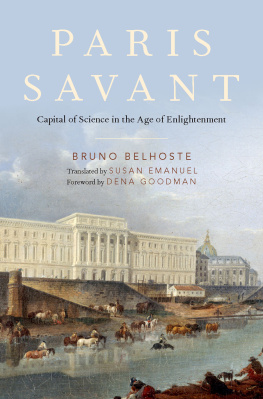
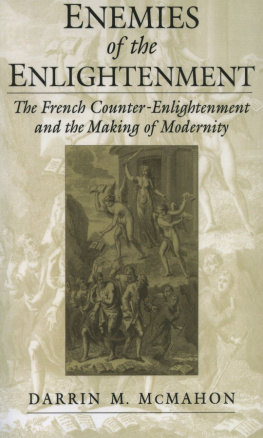
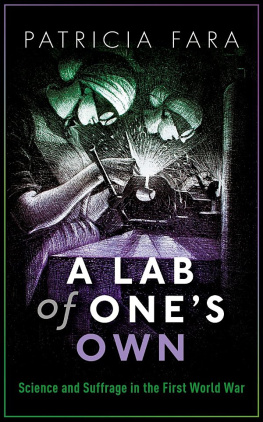
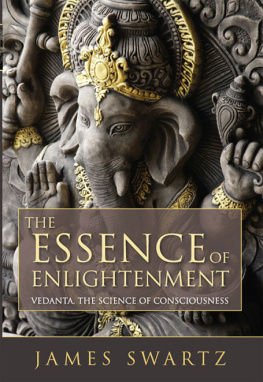
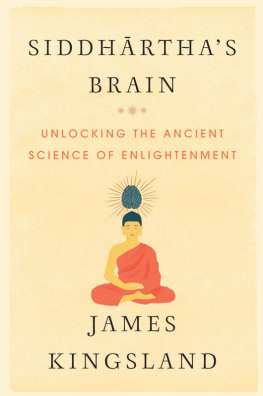

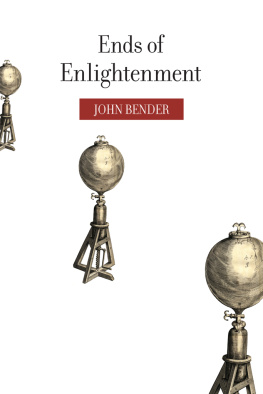
 MINERVAS FRENCH SISTER
MINERVAS FRENCH SISTER 